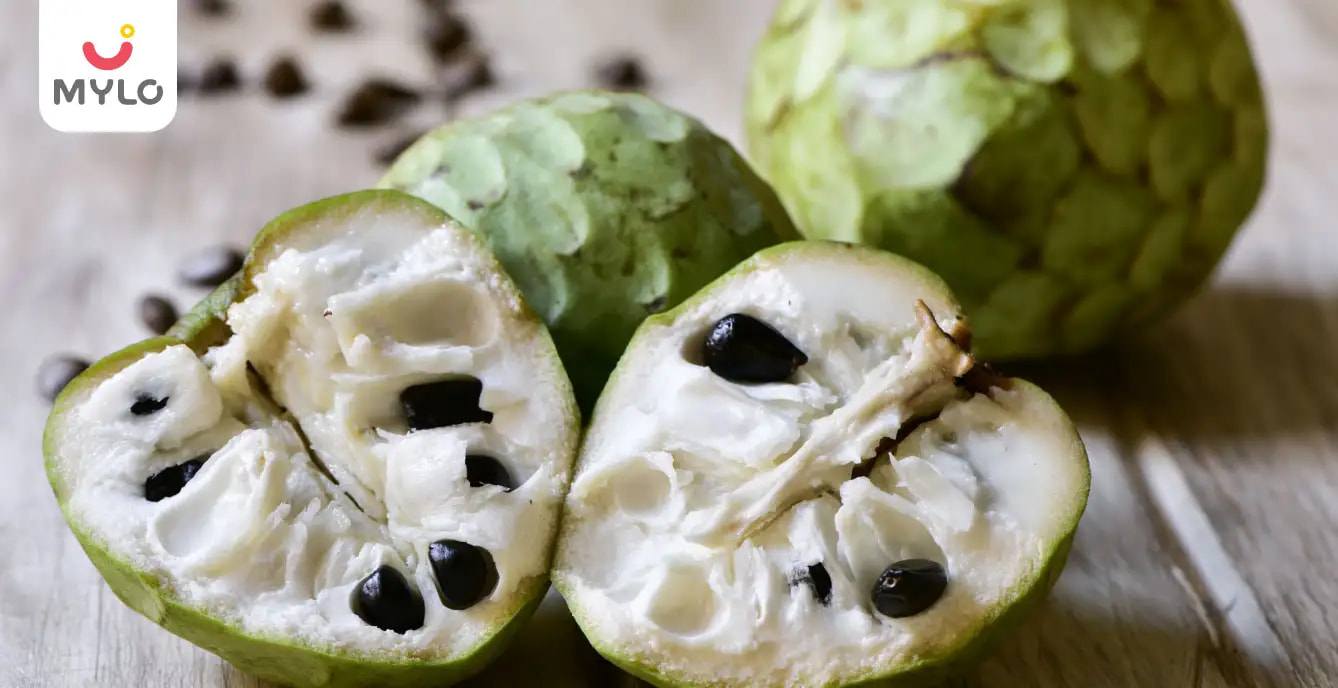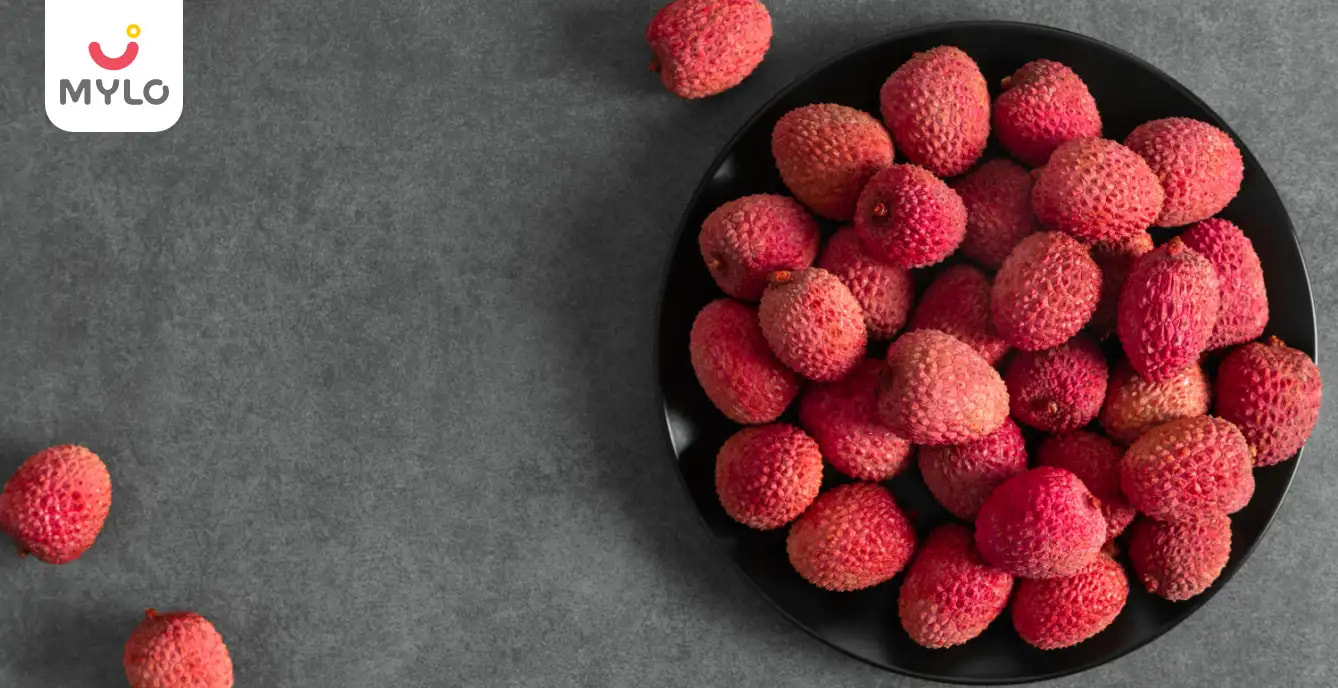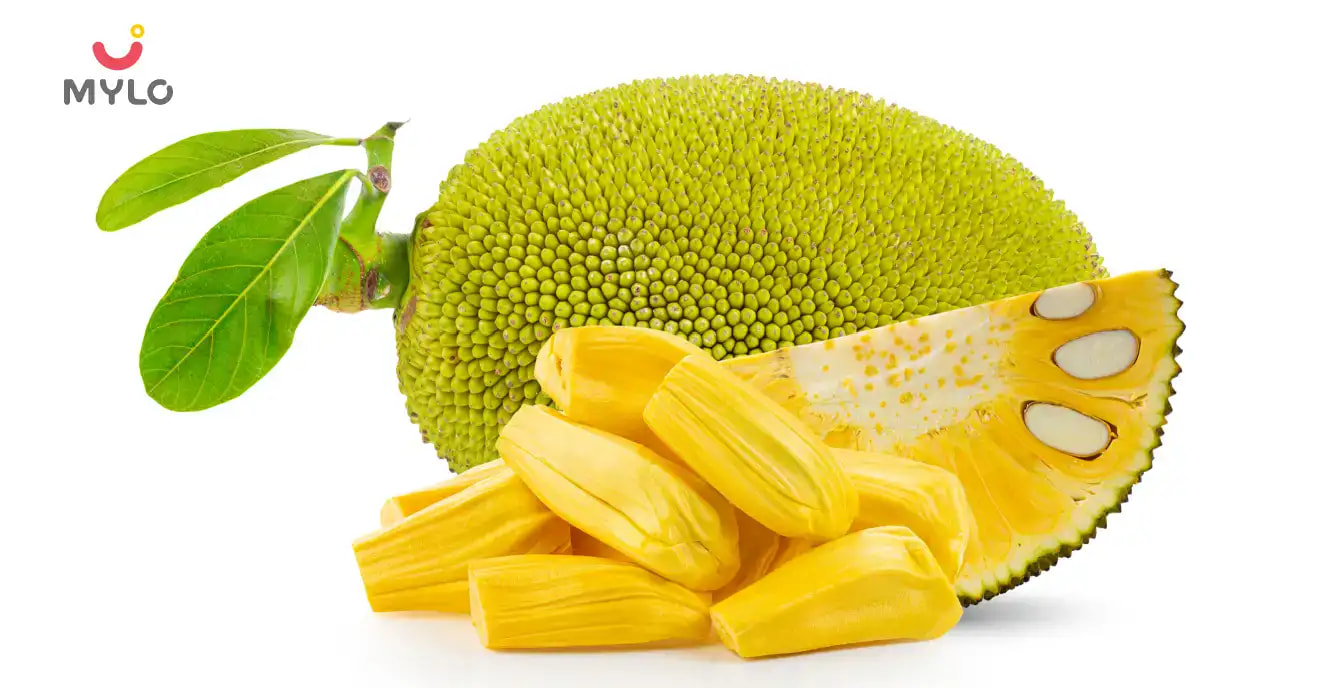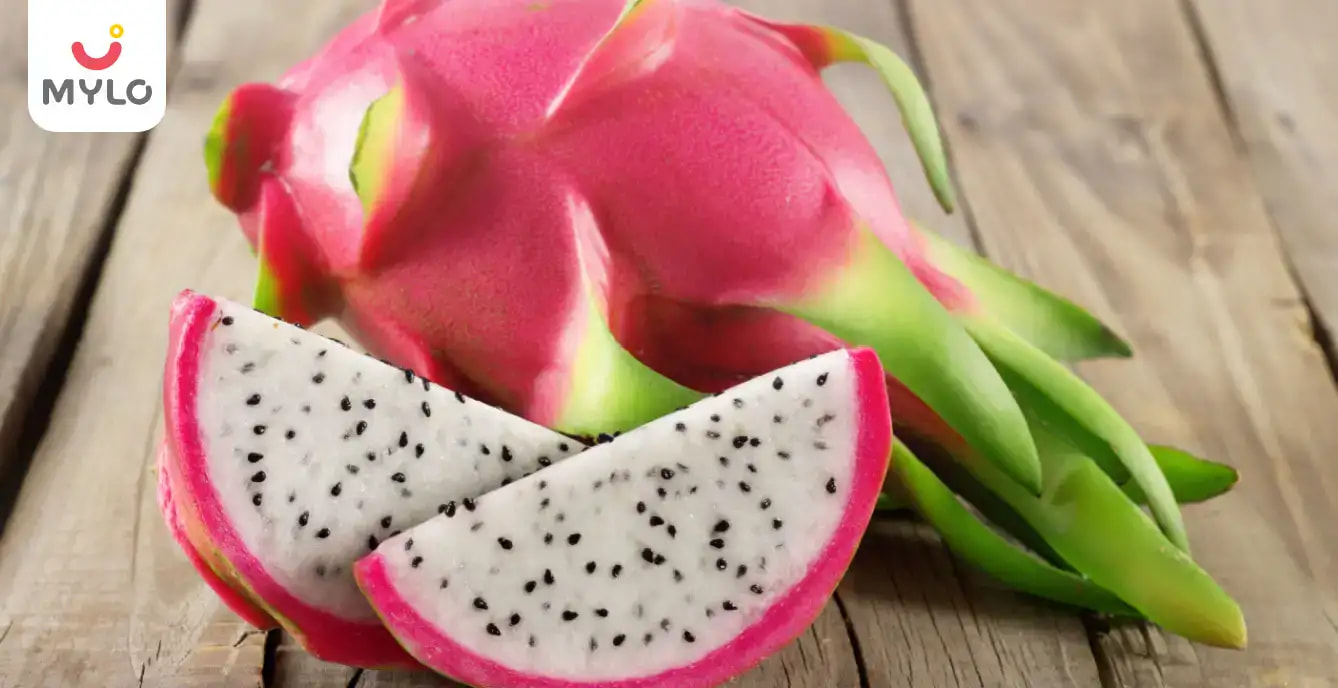Home

Orange in Pregnancy: Health Benefits, Side Effects & Precautions
In this Article

Orange in Pregnancy: Health Benefits, Side Effects & Precautions
Updated on 11 January 2024



Medically Reviewed by
Palak Mittal
clinical nutrition - M.Sc in Food & Nutrition| Post Graduation Diploma in Dietetics
View Profile

Oranges are a popular and nutritious fruit that many people enjoy eating. They are rich in vitamins, minerals, and antioxidants that are essential for optimal health. But what about eating an orange in pregnancy? Is it safe to eat orange for pregnancy?
In this article, we will explore the benefits and side effects of consuming oranges during pregnancy. We will also discuss how many oranges you can eat per day and any precautions you need to take to ensure the health of both you and your growing baby. So, let's dive in!
Health Benefits of Orange in Pregnancy
There are many benefits of eating oranges during pregnancy including:
1. Promotes formation of baby’s neural tube
Oranges are rich in folate, which aids in the development of the neural tube, making it an essential nutrient for expecting mothers. Brain and spinal cord disorders like anencephaly and spina bifida are possible outcomes of improper neural tube development. Eating oranges and other folate-rich foods in the first few months of pregnancy is particularly beneficial because this is when the neural tube develops.
2. Replenishes nutrients in the body
Vomiting due to morning sickness can deplete the body of nutrients. Because of their high nutrient density, oranges help replace electrolytes lost through vomiting and/or recovery from common cold and sickness. As a bonus, many pregnant women find that oranges are a welcome relief from nausea and dietary aversions.
3. Helps in staying hydrated
Pregnant women must take care to drink plenty of water. And eating water-rich fruits and vegetables is an excellent method to make up for any shortfall in your daily water consumption. Given that oranges constitute 80-89% water, they make for a tasty and refreshing drink. Watermelons, cantaloupes, apples, lettuce, and spinach are more fruits and vegetables that contain a lot of water.
4. Aids in the growth of baby's brain and bones
Vitamin C, fiber, potassium, calcium, folate, and potassium are all found in oranges. All of these vitamins and minerals help in fetal growth and development, especially your baby's brain, bones, and spinal cord.
5. Reduces stress
Vitamin C has long been recognized for its capacity to lower levels of stress hormones in the body. It may benefit our body's physiological response to stress, but it does NOT eliminate prenatal stress. The physical and mental toll of pregnancy is considerable. One potential aid is eating vitamin C-rich foods like oranges, bell peppers, strawberries, and tomatoes.
6. Strengthens the immune system
Vitamin C, abundant in oranges, is essential for maintaining a healthy immune system. Given that women are more prone to infections during pregnancy, oranges are a welcome immunity-boosting addition to their diet. More than 100% of pregnant women's daily vitamin C needs can be met by eating just one large orange.
7. Helps to reduce the risk of anemia
Folate, iron, and vitamin B12 deficiencies are all potential reasons for anemia in pregnant women. Vitamin C, found in oranges, is necessary for the body to absorb iron effectively. It goes wonderfully with meat and other iron-rich dishes. Because of this, consuming oranges is a healthy natural cure for lowering the danger of anemia and other issues during pregnancy.
8. Possibly beneficial in lowering blood pressure.
Eating oranges during pregnancy may also help you maintain a healthy blood pressure, which is crucial for lowering your chance of developing prenatal problems. Oranges' ability to reduce blood pressure can be attributed to their vitamin C, flavonoids, and potassium content. Potassium is a star nutrient because of its role in controlling blood pressure.
9. Helps in fighting constipation
Fibre, pectin, and naringenin can all be found in oranges. They are all well-known for their ability to calm an upset stomach and forestall a bout of constipation. If a pregnant woman eats one large orange a day, she will be halfway to her daily goal of 30 grams of fiber.
Side Effects of Orange in Pregnancy
Putting aside the great taste and several benefits of orange in pregnancy, there can be some side effects if a woman eats too many oranges while pregnant including:
- The high concentration of citric acid may cause irritation to the throat and may also wear away at the enamel of the teeth.
- The high fibre level could cause abdominal cramping and loose stools if you drink more than your body needs.
- Given that oranges are naturally acidic, overeating them while pregnant and suffering from gastroesophageal reflux disease (GERD) or reflux could cause the lady to have heartburn.
- Excessive vitamin C in the body may cause premature labor.
Is It Safe to Drink Orange Juice During Pregnancy?
Pregnant women can drink orange juice as long as it is pasteurised, free of additives and preservatives. Up to two 8-ounce servings of orange juice per day is fine. Pasteurised orange juice's high calcium content means it's an excellent choice for anyone looking to boost their bone health.
For those who have trouble digesting milk, fortified orange juice is an excellent alternative that has been shown to alleviate morning sickness. You might also make a refreshing mocktail by squeezing fresh oranges. However, too much sugar could raise your blood sugar levels, so moderation is key.
Expecting mothers who are suffering from gestational diabetes should avoid drinking fruit juices as they are high in natural sugar and raises blood sugar instantly due to their liquid state. Moreover, pregnant ladies should always prefer whole fruit to fruit juice to enjoy the benefits of fibre in fruits and keep problems like constipation at bay. 3-medium-sized oranges would be enough to produce 8-ounce juice, but mothers with GD should avoid it again.
How Many Oranges are Allowed to be Consumed Daily?
Pregnant women should get 85 mg of vitamin C per day. This need can be met by eating three oranges during pregnancy each day or other foods high in vitamin C. But if you eat oranges alongside other meals, you should still account for the total amount of vitamin C you get each day. Remember that eating too many oranges in one sitting might cause acidity and heartburn, so don't go overboard. Oranges and other foods high in vitamin C should be consumed in moderation. It's best to check with your physician before adding excessive oranges to your diet.
When is the Best Time to Eat Oranges?
Citrus fruits like oranges and grapefruits are fine at any time of the day, even when you're not very hungry. This fruit is so versatile that you can eat it anywhere from twice to four times daily.
How Can You Add Oranges to Your Diet?
You can add oranges to your diet in various ways. Here are a few ways you can enjoy orange for pregnancy:
- You can mix oranges in combination with other fruits to make a tasty fruit salad bowl.
- Add a few slices of orange to any salad for that extra taste.
- You can also drink fresh orange juice in pregnancy.
- You can also peel the orange and add water and sugar to it for fresh orange juice to indulge in sometime in the morning or evening.
- Add brown sugar on top of orange slices and put them into the microwave to broil.
- You can also make orange popsicles by putting orange juice in molds and then putting them into the freezer to freeze them.
What If You Consume Orange Seeds When Pregnant?
There is no evidence that eating orange seeds while pregnant is harmful. However, if you accidentally eat a particularly huge seed, you may find yourself suffocating. Pick satsumas or tangerines since they are small, have few seeds, and are simple to peel.
There are many ways in which oranges might help a pregnant lady. But you should talk to your physician before including them in your daily diet. Eat them in moderation if your doctor gives you the go-ahead. They are also excellent fruit to add to your diet after pregnancy. Thanks to their low fat and low glycemic index, oranges are a fabulous postpartum food for getting back in shape.
The anti-ageing and skin-nourishing qualities of this ingredient are another pluses. What's more, there are many women who even think that eating oranges during pregnancy makes baby fair! But, is that really the case? Can a fruit really change the skin colour of your child? Well, not really! Therefore, eat oranges for its health benefits and don't give much thought to such myths.
Conclusion
In conclusion, orange in pregnancy can be a great addition to your diet due to their many nutritional benefits. However, it is important to consume them in moderation and be aware of potential side effects such as heartburn and acid reflux. As with any dietary decision during pregnancy, it is important to consult with a healthcare provider to ensure the best outcomes for both mother and baby.
References
1. Jang, W., Kim, H., Lee, BE. et al. (2018). Maternal fruit and vegetable or vitamin C consumption during pregnancy is associated with fetal growth and infant growth up to 6 months. MOCEH
2. Franke AA, Cooney RV, Henning SM, Custer LJ. (2005). Bioavailability and antioxidant effects of orange juice components in humans. J Agric Food Chem





Medically Reviewed by
Palak Mittal
clinical nutrition - M.Sc in Food & Nutrition| Post Graduation Diploma in Dietetics
View Profile


Written by
Khushboo Jain
Get baby's diet chart, and growth tips

Related Articles
Related Questions
Hello frnds..still no pain...doctor said head fix nhi hua hai..bt vagina me pain hai aur back pain bhi... anyone having same issues??

Kon kon c chije aisi hai jo pregnancy mei gas acidity jalan karti hain... Koi btayega plz bcz mujhe aksar khane ke baad hi samagh aata hai ki is chij se gas acidity jalan ho gyi hai. Please share your knowledge

I am 13 week pregnancy. Anyone having Storione-xt tablet. It better to have morning or night ???

Hlo to be moms....i hv a query...in my 9.5 wk i feel body joint pain like in ankle, knee, wrist, shoulder, toes....pain intensity is high...i cnt sleep....what should i do pls help....cn i cosult my doc.

Influenza and boostrix injection kisiko laga hai kya 8 month pregnancy me and q lagta hai ye plz reply me

RECENTLY PUBLISHED ARTICLES
our most recent articles
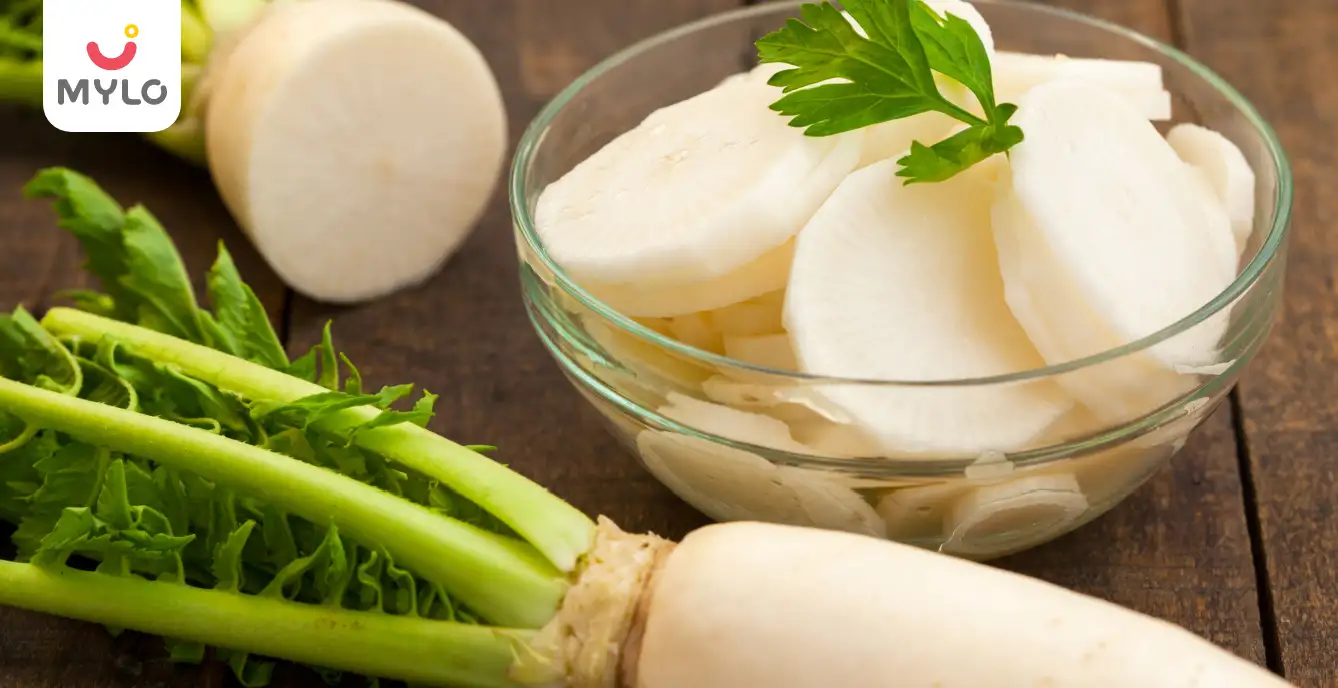
Diet & Nutrition
Radish in Pregnancy: Benefits and Safety Precautions

TV & OTT
Top 10 Pakistani Dramas That Will Keep You Hooked

Astrology
New Born Baby Astrology: What Does Your Baby's Zodiac Sign Say About Their Personality

Women Specific Issues
Pelvic Pain: Causes, Symptoms and Treatment Options
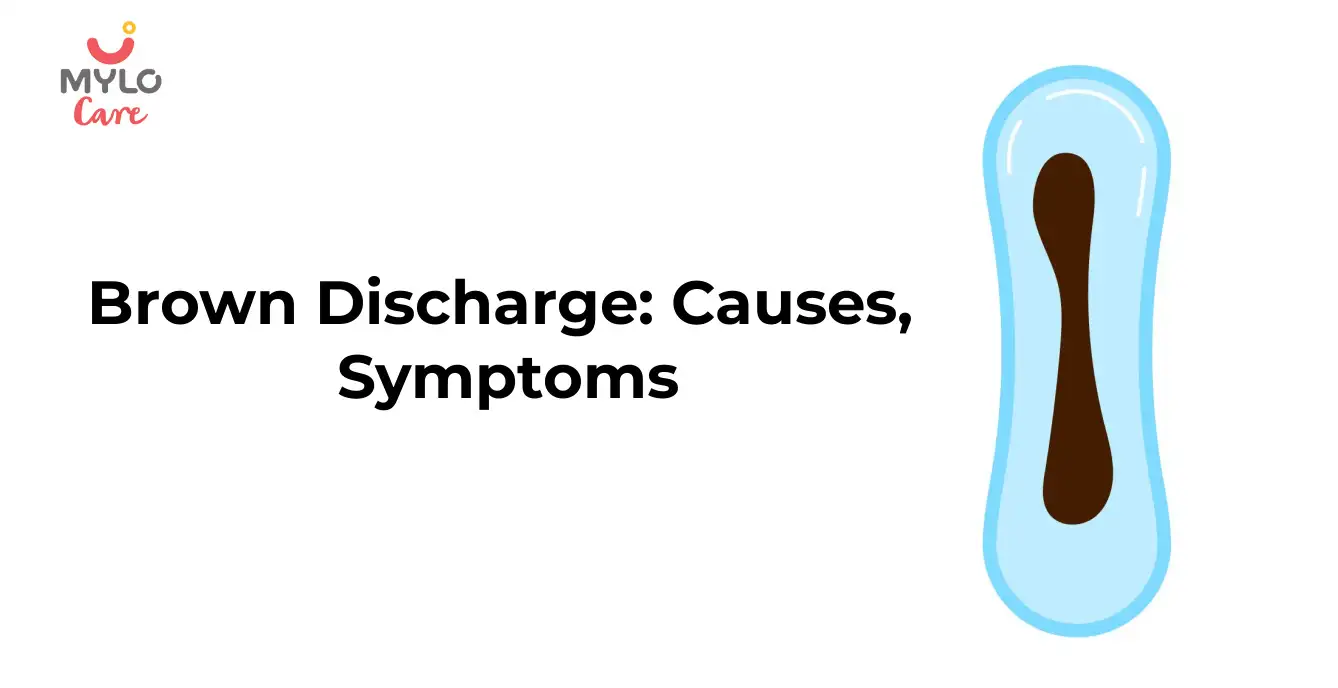
Vaginal Discharge
Brown Discharge: Causes, Symptoms and When to Seek Help

Care for Baby
Baby Hair Style: A Complete Guide for Trendy Parents
- Breast Pain During Ovulation: A Comprehensive Guide on Causes and Solutions
- PCOS Ultrasound: What to Expect During the Procedure
- Uterus Didelphys: Understanding Symptoms, Risks and Treatment Options
- Septate Uterus: A Comprehensive Guide on Symptoms, Risks, and Treatment Options
- Should Pregnant Women Get Flu Shots
- Why you should choose a Vaginal Delivery? Know the pros & cons
- The Art of Painting When Pregnant: Tips for a Safe and Creative Experience
- Do Pregnant Women Get Their Period?
- A Guide to Precautions After Ovulation When Trying to Conceive
- Tight Vagina and Women's Health: An In-Depth Guide
- The Ultimate Guide to Using Olive Oil for Baby Massage
- Heat Rash During Pregnancy: Causes, Symptoms and Prevention
- The Ultimate Guide to Understanding the Reasons for Late Period
- What Can Be the Maximum Delay in Periods If Not Pregnant?


AWARDS AND RECOGNITION

Mylo wins Forbes D2C Disruptor award

Mylo wins The Economic Times Promising Brands 2022
AS SEEN IN

- Mylo Care: Effective and science-backed personal care and wellness solutions for a joyful you.
- Mylo Baby: Science-backed, gentle and effective personal care & hygiene range for your little one.
- Mylo Community: Trusted and empathetic community of 10mn+ parents and experts.
Product Categories
baby carrier | baby soap | baby wipes | stretch marks cream | baby cream | baby shampoo | baby massage oil | baby hair oil | stretch marks oil | baby body wash | baby powder | baby lotion | diaper rash cream | newborn diapers | teether | baby kajal | baby diapers | cloth diapers |



